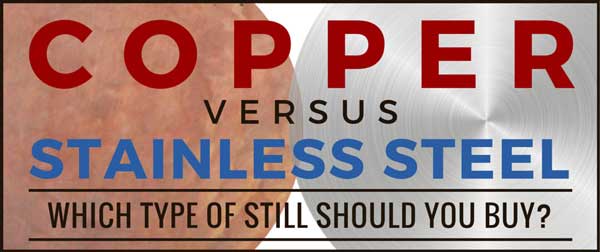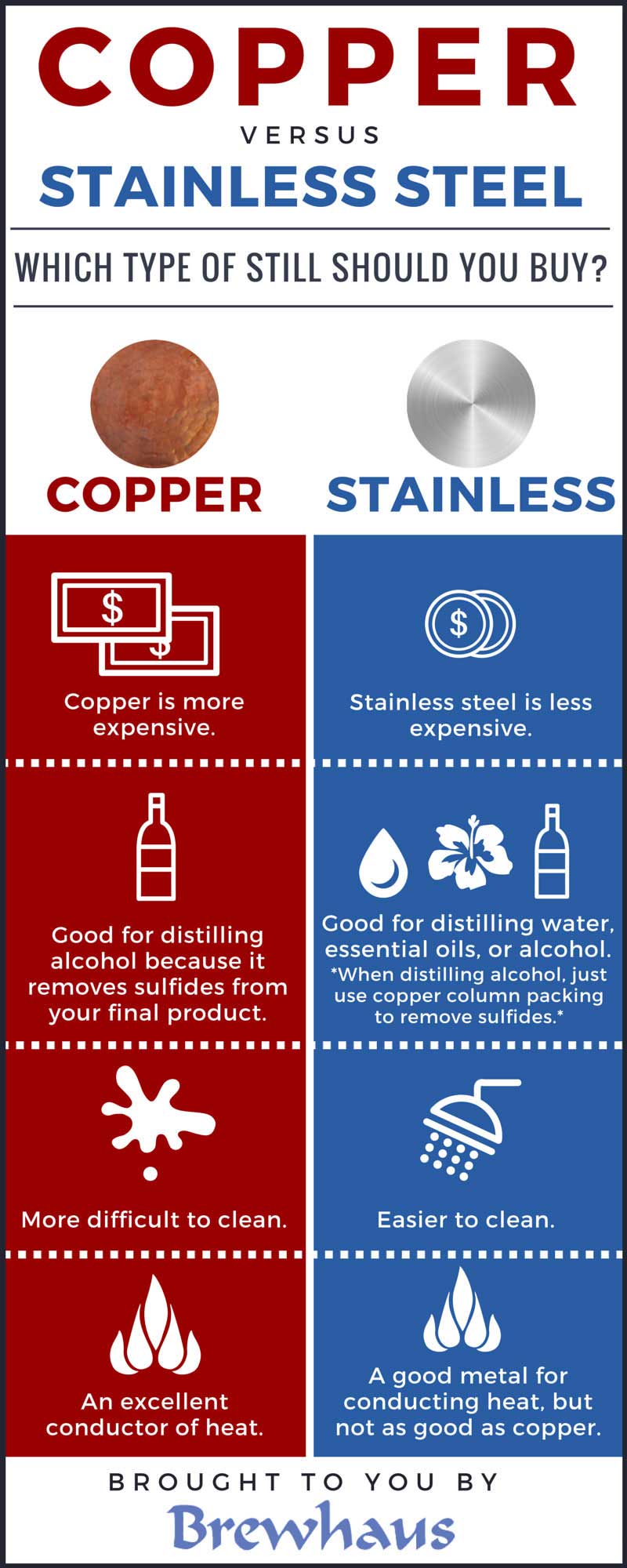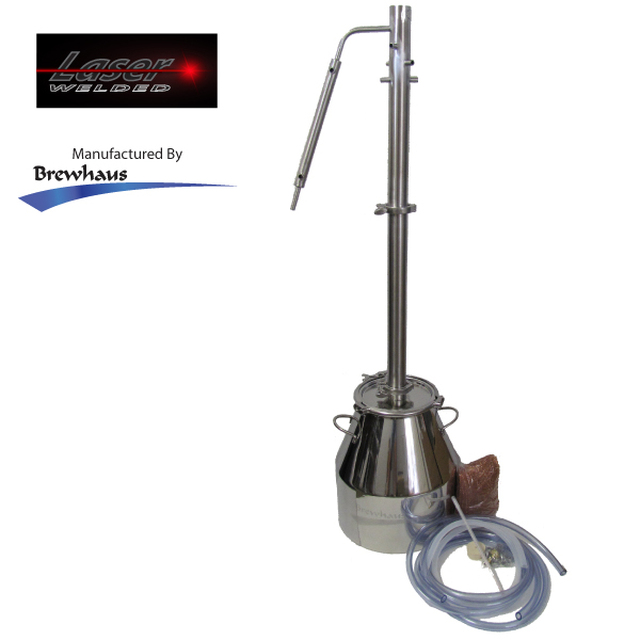Copper vs. Stainless Steel Moonshine Stills

Back in the day, copper was the most popular choice for a moonshine still because (a) copper is a soft metal, so it was easy to shape and build with, and (b) copper reacts with and eliminates the nasty sulfur compounds that form during fermentation. Copper’s biggest strength is the fact that it eliminates those sulfur compounds, making it an important step in distilling alcohol. But do you need your entire still to be made out of copper in order to get rid of those sulfides? Actually, no you don’t. Using even a small amount of an all-copper column packing such as mesh, scrubbers, or rings inside your stainless steel column will remove those sulfur compounds. So here are some questions to ask yourself when trying to decide which type of alcohol distiller to buy?
Do I want to build or buy my still?
If you’re going to build a still yourself, then you’re most likely going to use copper. You can find tons of moonshine still plans online by doing a quick search. It is a much softer metal than stainless steel, so it’s easier to build with—and it’s also usually easier to find parts. Plus, copper is better at conducting heat than stainless steel is, so it’s a popular choice for the DIY crowd. But if you’re looking to buy a still instead of building one, you should ask yourself a few more questions before deciding which material to go with.
What do I want to distill?
As I mentioned above, copper is a vital component when you’re distilling spirits. However, your entire still doesn’t have to be made out of copper in order to get the sulfur-eliminating benefits. You can go with a stainless steel still and also use copper in your column packing. If you want to distill water or essential oils, you actually don’t want the chemical reaction that occurs with copper. Therefore, a stainless steel still can be used for distilling a variety of substances because you can use the copper column packing to distill your alcohol and then remove the column packing (or use ceramic raschig rings) to distill your water and essential oils. The copper still is more limited in this sense because it can only be usedas an alcohol distiller.
What’s my budget?
Copper is more expensive than and not as strong as stainless. This means that not only will you be paying more for the copper material, but you’ll also need more material overall in order to build a still that’s sturdy enough for your needs. Stainless steel also holds up better over time because the copper can become warped or start losing its shape over years of use. Overall, if you’re trying to keep costs down, you’re better off going with the stainless. If you have plenty of money, then you have the option to splurge and go for the copper.
How good will I be about cleaning it?
Stainless steel is easier to clean, hands down. If you have a copper moonshine still and you’re not diligent about cleaning it, you’ll eventually be able to taste it in your product, and it’s not good. It won’t necessarily hurt you, but when you’re making beverages, taste matters. A paste made from vinegar, salt, and flour is what’s usually recommended for cleaning copper stills. You’ll have to apply that paste to your still, let it sit for about half an hour, thoroughly wash it off, and then possibly repeat the entire process. It’s less time-consuming to clean stainless steel because you don’t have to use a paste or let it sit. With a stainless steel moonshine still, you rinse it with some warm water and dish soap or vinegar. If you know you’ll take the time to clean your copper still and that gives you a sense of pride, then the beauty of copper may be worth the effort to you. If you’re a very busy person and honestly know you won’t be very good about cleaning it, you may be better off going with stainless for practicality.
Remember, there’s really no right or wrong answer when trying to decide between a copper moonshine still or a stainless steel moonshine still—there’s only what’s right for you. If you do your research and weigh your options before you buy, you’ll wind up with a great piece of equipment that you can enjoy for years to come regardless of what it's made from.










Comments